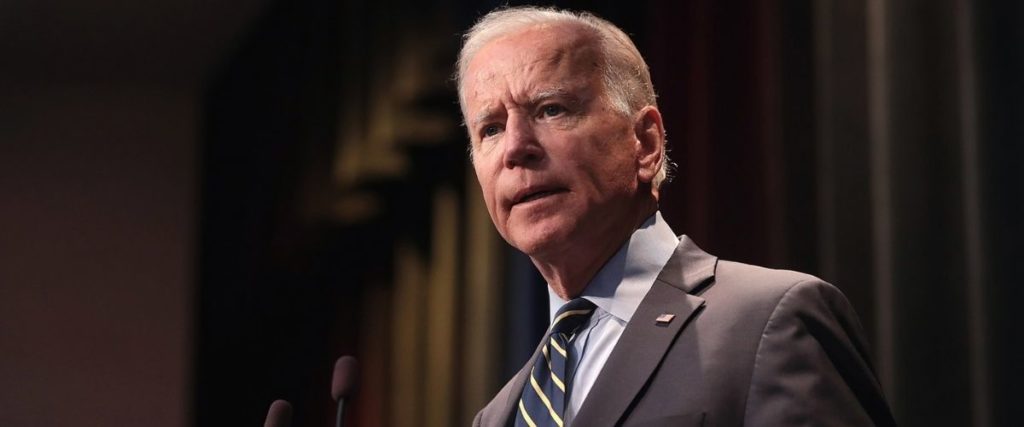With former Vice President Joe Biden now set to become the 46th President of the United States, many are wondering how a Biden administration would tackle issues in Asia Pacific, and specifically, China.
• His predecessor, Donald Trump, has led a hawkish administration intent on forcing governments to choose between the US and China.
• A Biden administration would most likely curb some of the extreme rhetoric against China that the Trump administration has been unapologetic in using, but there is a general consensus that the US will only be changing the style, and not the substance of their general approach to the Asia Pacific region.
Trade, tech & tariffs: Biden’s “Buy American” campaign has pledged to invest USD 300 billion in domestic tech research and development – this will include electric vehicles, lightweight materials, 5G, and AI.
• This inward-facing policy will continue Trump’s efforts to shift supply chains back to the US from China and restrict China’s access to cutting-edge technologies on the grounds of intellectual property protection and national security.
US-China trade war: Similarly, Biden’s attitude towards China will likely retain a hard-line approach, given the current political climate. The US has been very critical of China’s human rights abuses in Xinjiang and its escalating political clampdowns in Hong Kong – a stance that Biden could well continue. Tensions over the contested South China Sea will also likely continue, considering both nations have ramped up military drills.
• Biden has described the Trump-imposed tariffs on Chinese goods as “self-defeating”. However, according to Reuters, former Trump and Obama administration trade officials have said that in order to roll back tariffs on Chinese goods, Biden would likely have similar demands from China as Trump: reducing subsidies to state-controlled firms, ending policies that force US companies to transfer technology to their Chinese counterparts, and opening its digital services markets to US tech firms.
• However, other analysts have pointed to a willingness to ease tensions to establish a competitive coexistence instead. Kurt Campbell and Jake Sullivan, two of Biden’s top advisors, wrote in Foreign Affairs that “the goal should be to establish favourable terms of coexistence with Beijing in four key competitive domains – military, economic, political and global governance.”
• Chinese experts have expressed optimism that Biden’s presidency will provide an opportunity for breakthroughs in resuming communication and rebuilding mutual trust between the two superpowers, reported the Global Times, a Chinese state media newspaper.
Southeast Asia: Biden is likely to redouble efforts on re-establishing relations with other democratic governments to achieve common goals.
• Biden campaigned last August that he would seek to renegotiate the terms of the Trans-Pacific Partnership, reversing Trump’s withdrawal from the proposed talks in 2016. He had previously been a staunch supporter of the TPP during his time as vice-president under the Obama administration.
• The agreement would lower both non-tariff and tariff barriers to trade for 12 countries (including Australia, Japan, Malaysia, Singapore, and Vietnam).
• Biden’s senior advisor Anthony Blinken has promised that “President Biden will show up and engage ASEAN on critical issues.” In contrast, Trump declined to attend the last three annual meetings of the East Asia Summit in what has been seen as a show of disdain for multilateralism.
Global relations: Biden has also made a commitment to convene a global “summit of democracies” during his first year in office. The summit would discuss issues ranging from beating the pandemic and its economic consequences, to dealing with China’s rise, and the growing threat of climate change.
Stock markets: APAC stocks rose over the weekend as news broke of Biden’s victory over Trump, while oil prices surged.
• In Japan, the Nikkei 225 rose by 2.04%, while the TOPIX added 1.42%.
• Mainland Chinese stocks also reacted positively, with the Shanghai Composite Index up 1.1% and the Shenzhen Component Index gaining 1.473%. Hong Kong’s Hang Seng Index advanced 1.34%.
• Oil prices surged over the weekend, with international benchmark Brent crude futures up 2.71% to USD 40.52 per barrel. U.S. crude futures jumped 2.83% to USD 38.19 per barrel.
Taiwan: Although Trump approved the export of USD 1.8 billion in weapons to Taiwan earlier this month, it remains unclear whether Biden will follow suit, considering Obama’s more conservative policy regarding arms exports. However, there is strong support for establishing US-Taiwan ties
• Taiwan has proven to be a symbolic touchpoint between US-China relations, and its leading semiconductor tech also places the nation in a unique position in the trade war. Rafiq Dossani, director of the Center for Asia Pacific Policy at Rand, told Asia Nikkei that he believed that US foreign policy would likely tend towards a more sympathetic stance towards Taiwan if Taiwan-China relations deteriorated.
North Korea: Biden has criticised North Korea’s dictatorship, characterising Kim Jong-un as a “thug”. Some analysts believe that Biden may push for further denuclearisation in exchange for a relaxation of sanctions.
Looking ahead: The Biden administration will be able to implement policy from 20th January next year, after Biden undergoes the Swearing-in Ceremony at the 59th Presidential Inauguration.
• However, Donald Trump has still refused to accept the results of the election. He has continuously spread false rumours of voter fraud without evidence and denounced mail-in voting as having “really destroyed our system. It’s a corrupt system and it makes people corrupt.”
• Trump’s unsubstantiated claims appear even more flawed considering the extremely low rate of electoral fraud in the United States: the rate is less than 0.0009%, according to a 2017 study by the Brennan Center for Justice at NYU Law.
• The Trump campaign is seeking recounts in Pennsylvania, Wisconsin, and Georgia, according to Al Jazeera.
Photo Credit: Gage Skidmore, Wikipedia
Related Articles
Made in China: A Deep Dive into Escalating US-China Tensions
“Cancel Culture”: Claire Lehmann’s Controversial Take on Intolerance





